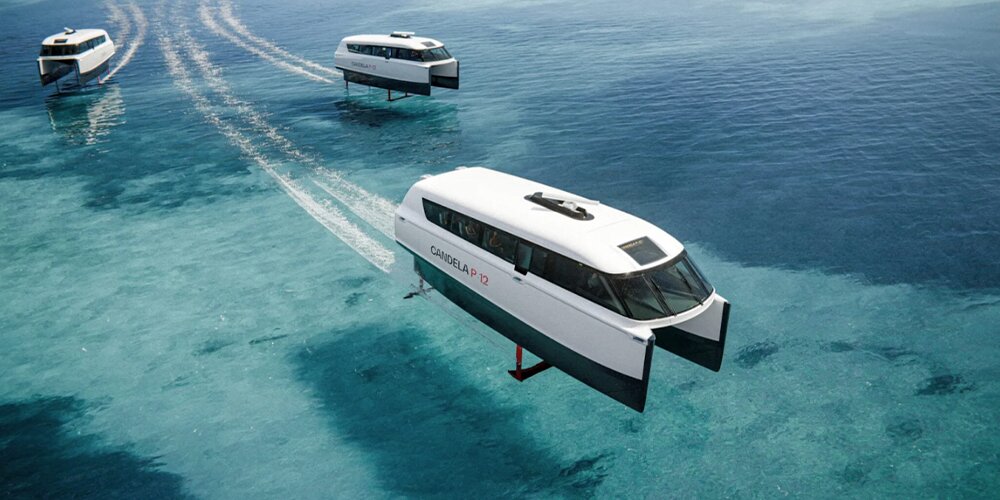Browse our services
Explore how Brookes Bell can help you
Find an expert
Meet our team, find and expert and connect
Contact us
Get in touch, we're here to help

Electric boatbuilder Candela is changing the world of ferries and transportation with their innovative hydrofoil electric vessels.
The Stockholm-based company, founded in 2014 with the ambitious mission of transforming the maritime industry by replacing traditional diesel engines with environmentally-friendly, battery-powered alternatives.
Founder and CEO at Candela, Gustav Hasselskog, said: “We aim to transition to fossil fuel-free transport with superior efficiency and environmental benefits. Traditional ferries are polluting, costly, and slow. Our hydrofoil technology unlocks the potential of waterways, offering quicker, more comfortable, and cheaper journeys, reducing road congestion from Stockholm to New York to Bangkok”.
The company’s hydrofoil electric vessels “fly” above the water, which it claims uses 80% less energy than conventional vessels.
It is more than a proof of concept. Candela recently set a new electric boat record, taking the C-8 model 150 nautical miles across the Baltic Sea from Stockholm, Sweden to Åland, Finland.
This achievement, which took place on the 12th September 2024, marked the first time an all-electric boat had crossed the Baltic Sea.
“The aim was to demonstrate that zero-emission sea travel is not only possible today, but that foiling electric ships and boats are so much cheaper to operate than fossil-fuelled vessels,” Hasselskog said.
Candela introduced its revolutionary P-12 electric foiling passenger ferries in 2023. These world-first, long-range electric ferries utilise a system of hydrofoils, which lift the hull out of the water.
Estimations put the lifetime emissions of the P-12 at 97.5% below traditional diesel vessels. Thanks to the minimal wake the vessel generates, they are also exempt from speed restrictions.
“Unlike legacy systems with large, slow, and energy-inefficient conventional ferries, the Candela P-12 is a smaller and faster unit, allowing much more frequent departures and quicker journeys for passengers. All daily necessities and services will be just a short boat commute away,” Hasselskog added.
In March 2024, Candela secured a €24.5 million investment led by Groupe Beneteau, the most significant funding in the company’s history. The investment led the way for an expansion of production for its P-12 electric ferry.
In August 2024, Candela signed the largest order in the company’s history to supply eight P-12 vessels to the global development project, NEOM, in Saudi Arabia. This fleet will service NEOM’s waterways along the Red Sea coast, and are scheduled for early 2025 and 2026.
“We are manufacturing the first P-12 vessels in our Stockholm factory, where we already build the C-8 at a pace of one per week,” Mikael Mahlberg, head of PR and communications at Candela, said.
“We are on a hyper-growth journey, and now the focus is on P-12. To scale production, as we will eventually need to build hundreds of units yearly to satisfy demand”.
The highly-complex field of naval architecture requires practitioners to have an acute understanding of multiple branches of engineering to create beautiful, yet seaworthy vessels and structures.
Luckily, this is a field Brookes Bell excels in. If you need naval architecture support, Brookes Bell’s depth of experience and culture of innovations make us the first choice.
For more maritime industry insights, news and information, read the Brookes Bell News and Knowledge Hub…
UK Government Announces Record Offshore Wind Budget | MoL to Use AI System to Detect Fires on Car Carriers | ST Engineering Eyes Offshore Renewables Growth With New Singapore Yar